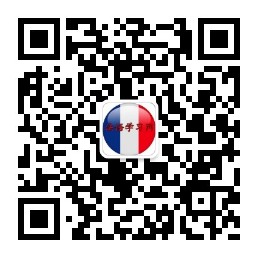Compound tenses.--Agreement of participles: Reflexive verbs.
Examples
Elles se sont lavées. They have washed themselves.
Elles se sont lavé les mains. They have washed their hands.
Ils se sont écrit des lettres. They have written each other letters.
Voici les lettres qu'ils se sont écrites. Here are the letters that they wrote each other.
A. 1. We have gotten rid of our servant. 2. She had already gone to bed. 3. I began[1] to tremble. 4. The soldiers had fled. 5. The boys have gotten lost in the woods and have not yet found their way. 6. Corneille and Racine have appropriated heaven and earth, that's[2] why I have cast myself into Hades. 7. We have been taking a walk. 8. I thought she had drowned herself. 9. They became aware of the absence of the servant. 10. The wretches would have hung themselves, if they had been able. 11. She found herself before a wooden man, and she fled. 12. Why have you given yourself up to sleep? 13. wher did you (plur. fem.) go walking this evening? 14. The two courtiers have become reconciled.[3] 15. We took a walk. 16. She has not been deceived.[4] 17. It is to[5] be regretted[6] that they have[7] not become reconciled.[3] 18. It is extraordinary that you have[7] gotten lost.[8]
[Footnotes 1: se mettre. 2: voilà. 3: se réconcilier. 4: se tromper. 5: à 6: Active infinitive. 7: Subjunctive. Why? 8: s'égarer.]
B. Word Study. Use the following words in the proper spaces in the exercise below:
(a) avant, devant, avancer, devancer, avantage, désavantage, avantageux, auparavant, avance, avant-bras, avant-poste, davantage.
1. Il y a un grand arbre ---- notre maison. 2. Le bateau n'---- pas. 3. Régnier a ---- Molière. 4. Il s'approche d'un ---- de l'ennemi. 5. Son père était mort quelques mois ----. 6. Quel ---- n'a pas un discours prononcé sur un ouvrage qui est écrit! 7. C'est assez; ne m'en dites pas ----. 8. On lui a fait des conditions ----. 9. ---- de partir, dites-lui adieu. 10. Il s'est fait mal à l'----. 11. Nous avons le ---- de la position. 12. Pour entrer, il faut payer d'----.
(b) beau, bel, belle, beauté, beaucoup, beau-père, beaux-arts, belle-mère.
1. Ma femme est la fille de mon ----. 2. Ma ---- est la mère de mon mari. 3. Elle n'est pas très ----. 4. La musique et la sculpture sont des ----. 5. Mon frère n'est pas un ---- homme. 6. Mais j'admire la ---- de son caractère. 7. Mon cousin est très ---- mais ma cousine n'est pas ----. 8. Je les aime ----.
(c) connaître, connaisseur, connaissance, reconnaître, se connaître (à).
 英语
英语 日语
日语 韩语
韩语 德语
德语 西班牙语
西班牙语 意大利语
意大利语 阿拉伯语
阿拉伯语 葡萄牙语
葡萄牙语 越南语
越南语 俄语
俄语 芬兰语
芬兰语 泰语
泰语 丹麦语
丹麦语 对外汉语
对外汉语

